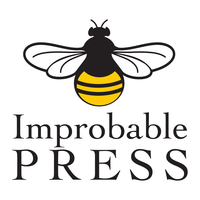By Kizzia Mildmay

But I am, and have been for a very long time, utterly fascinated by the experiences of the men and women who serve Queen and Country in the British Army and find myself drawn to both reading and writing characters with military experience. This interest is, in fact, the reason that I fell in love with BBC’s Sherlock within the opening moments of "A Study in Pink," because they gave me Captain Watson who had been in the thick of the action in Afghanistan before they gave me anything else.
Up until I started to write BBC Sherlock fan fiction I had not attempted to write a character who had served in the modern British Army and I quickly realised that if I wanted to do Captain Watson justice then I needed to do some serious research.
Because fiction and movies can only take you so far in your understanding of something and the majority of my serious research into soldiers’ lives at that point had been in relation to WWI, which whilst helpful in a general sense didn’t give me anything meaningful to work with. After all, both warfare and civilian life has changed so dramatically in the last 100 years that WWI language compared to ‘Afghanistan’ language is a bit like speaking Welsh rather than Irish—they both have the same root but have diverged so significantly that they are no longer easily interchangeable.
So I went to library, I prowled the shelves of second-hand bookshops, I Googled and I Googled and I found, and then read, everything I could that was written by the men and women who served in Afghanistan. Most of their books had glossaries, most of which overlapped in part, but each had differences depending on regiment, rank and where and when in Afghanistan they had been posted.
So I made my own glossary—in the back of the notebook I was using at the time—combining all of their terms and including others that I needed explained and that they hadn’t included. I ended up having to tear all 26 pages out and they are now carried around in the back pocket of my current notebook, even though I don’t have to refer to them as much as I used to.
I reached out and contacted the servicemen and women who had written the books and asked them if they wouldn’t mind answering a few of my questions. I didn’t get one person saying no and from that I learnt things that weren’t in the books—like what it actually feels like to be shot in the shoulder and that the Army use 10 round magazines for the SIGs that were the standard handgun issue for the troops in Afghanistan.
I kept reading, kept adding to my master glossary and I began watching documentaries and films about the conflict, focusing on those made to be as true to life as they could be.
I also read up about Afghanistan, looked at photographs of the landscape, pinned a map of Afghanistan to the wall and marked out the area of UK Army control and the bases. I even got hold of phrase books in Pashto and Dari and read up on the experiences of the interpreters and the stories of the Afghanistan people caught up in a war that they could do nothing about.
I basically spent over a year as immersed as I could in the stories of the people who did the things I wanted to write about. After all, it was as close as I could ever (and would ever want to) come to going out there and doing it myself.
And doing this let me write fan fiction where Captain Watson was front and centre with confidence (the fic I’m most proud of is Lack of Color, if you’re wondering) and enabled me to produce a first draft of a novel which is set in pretty much equal parts between WWI and the Afghanistan Conflict (think Kate Morton’s style of novel but with added war and soldiers). It also gave me an understanding and empathy for those who serve that will never leave me.
And in case anyone thinks I’m saying that I could march into any barracks in the country and fit right in; I’m not. To any soldier who met me I doubt they’d even consider me a “wet behind the ears, so green they could plant me, raw recruit”. I’d be the obvious outsider from the word go.
For one thing, I fail on the one third of everything being a profanity and I’m rubbish at creating new swear words. For another I haven’t lived it. If I’m honest I don’t think anyone who hasn’t actually been a part of the British Army could ever be truly fluent because the speech patterns and slang are so tied to the experiences of serving and army life that all civilians will always be on the back foot.
But I can get by and I can, with care and continued emersion via the books and other media from real soldiers, speak it well enough to create believable stories. Which is all I ever wanted to do in the first place.
If anyone is interested in finding some things out for themselves, I have a list of resources relating to the British Army and the Afghanistan Conflict on my website and you can find it here. I’ve also got a page talking about my thoughts on BBC Sherlock’s John Watson with links to a few posts about things that relate specifically to him: Captain Watson and Afghanistan.
Kizzia writes stories. Often about wars, myths, legends and magic. She also crochets, walks miles across Britain, plays the ukulele and is on twitter as @kizzia30.
Artwork (the name Sherlock Holmes in Morse code): Janet Anderton
